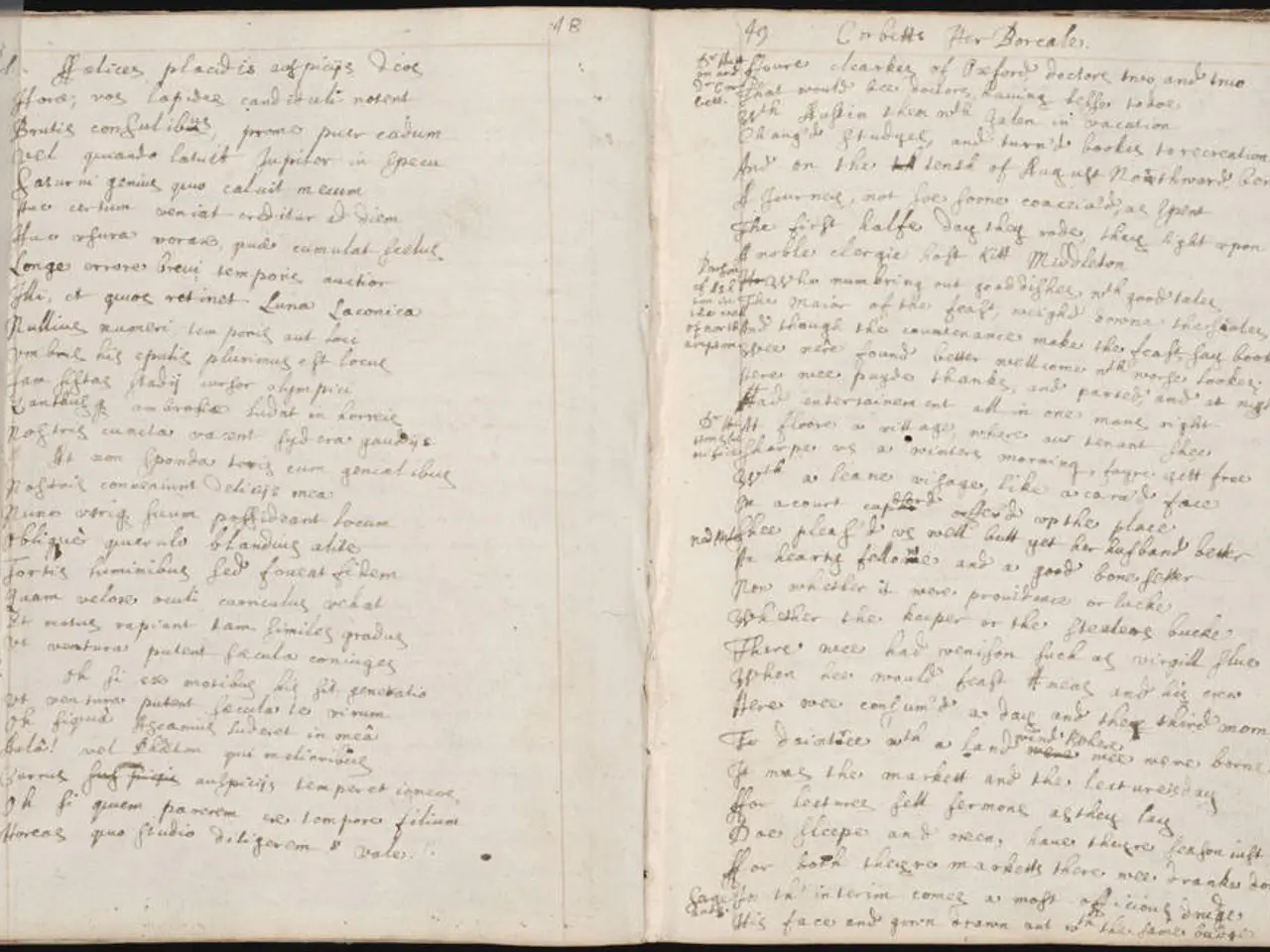Principles Underpinning a Change Methodology
In recent discussions, the spotlight has been cast on the various mechanisms that drive social and systemic change. While a specific resource, the Resource Manual for a Living Revolution, did not directly provide information about its own mechanisms of change, we delve into some general theories and frameworks that offer valuable insights.
One such theory is the J-curve hypothesis, which explains collective rebellion as a response to a sharp decline in conditions after a period of growth. This theory, however, focuses on a specific dynamic rather than a comprehensive set of change mechanisms.
A framework for understanding social change more broadly can be found in the Resource Manual for a Living Revolution. The manual defines several key elements of a theory of change, including the nature of human beings, the nature and sources of power, the nature and sources of truth and authority, the analysis of the causes of social problems, the role of individuals and institutions in social change, the vision of the way it can or should be, and the mechanisms of change.
The mechanisms of change, as defined in the manual, are the various techniques used by people to make change. These techniques include individual awareness and mindset shifts, collective action and mobilization, structural or institutional reform, and cultural transformation.
Narrative change experts have also shared a framework for measuring the impact of work related to narrative change, while NetChange Consulting offers a guide for establishing a People Powered Theory of Change. The People Power Manual: Campaign Strategy Guide is another resource created for organisers, activist educators, and facilitators.
The Change Agency offers a guide on mechanisms of change, and a template for developing your Theory of Change based on the works of Marshall Ganz is available. The Campaign Strategy Worksheets by Training for Change provide a Campaign Theory of Change Statement.
Naomi Blackburn facilitated a workshop on Theories of Change in 2012, which was based on the Resource Manual for a Living Revolution and workshop curriculum developed by Tash Verco. The workshop primarily focused on the nature and sources of power, the role of individuals and institutions, and the mechanisms of change.
In the workshop, participants explored mechanisms of change such as becoming the decision makers/ powers that be, influencing the powers that be, confronting the powers that be, education, care taking, social change through personal change, building alternatives, and cultural change, among others.
For a more in-depth understanding of one's role in social change, the book "Where's the Power? Developing Your Theory of Change" is a valuable resource. Asking questions about these elements in a group, organisation, or campaign can help make explicit the shared theory of change or highlight significant differences to explore.
In conclusion, while the Resource Manual for a Living Revolution did not directly provide information about its own mechanisms of change, a wealth of resources and theories exist that offer valuable insights into understanding and implementing mechanisms of social and systemic change.
- The Resource Manual for a Living Revolution outlines several key elements of a theory of change, including mechanisms of change, which are the various techniques used by people to instigate change.
- NetChange Consulting offers a guide for establishing a People Powered Theory of Change, while The Campaign Strategy Worksheets by Training for Change provide a Campaign Theory of Change Statement, both serving as resources for understanding change mechanisms.
- In the workshop on Theories of Change, mechanisms of change such as education, social change through personal change, building alternatives, and cultural change were explored, providing insights into personal growth and learning.
- For a comprehensive understanding of one's role in social change, the book "Where's the Power? Developing Your Theory of Change" is a valuable resource, offering guidance on how to develop a personal theory of change that incorporates both education-and-self-development and efforts for social change.




